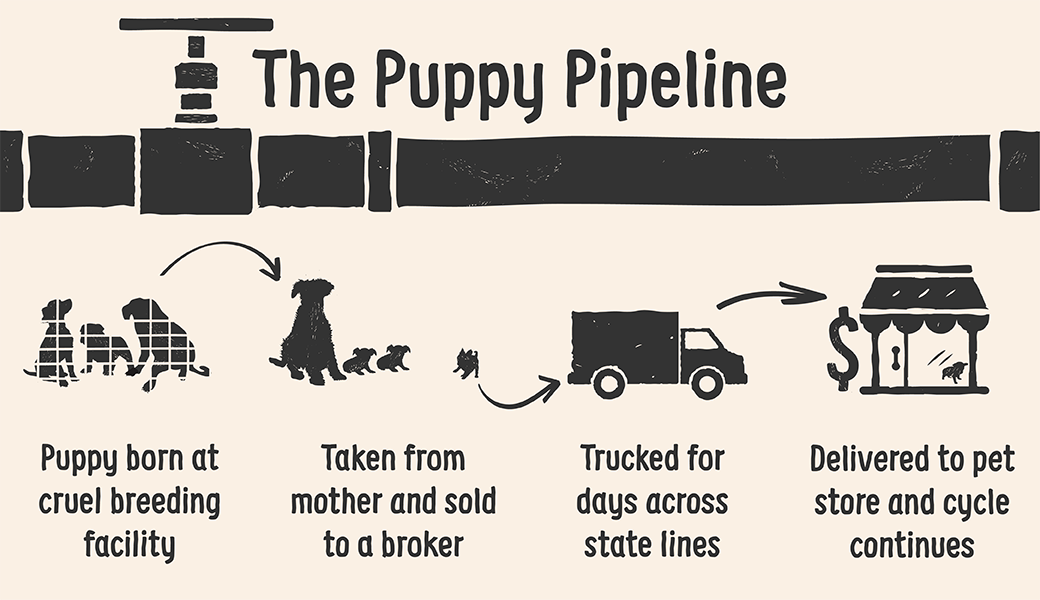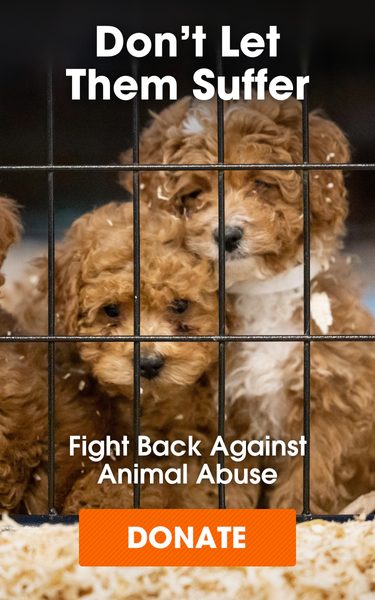Cruel puppy breeders rely on pet shops and online sellers to present a spotless, wholesome image so customers won’t think about where puppies are born and how breeding dogs are treated. But there are also other industries that make the puppy pipeline possible, including dog brokers, auctions, and transporters.

Dog Brokers
Do you ever wonder how a pet store can have such a variety of different puppy breeds available at the same time? It would be difficult for a local pet store to keep track of when breeders across the country have puppies available. Dog brokers help solve this problem.
A dog broker or puppy dealer is a middleman, a distributor who obtains puppies in bulk from commercial breeders and re-sells them to retailers. They offer one-stop shopping for pet stores and make it easy for them to offer the range of puppies customers want. There are currently around 250 USDA-licensed puppy brokers in the United States (this figure fluctuates year to year). Breeders are happy to work with brokers because many brokers will buy most or all the puppies a breeder has available and are willing to truck puppies over long distances to their final retail destinations.
Cruel breeders and brokers are also increasingly turning to the Internet to sell puppies. Brokers might call themselves “puppy finders” or “puppy concierges.” Instead of physically buying and then re-selling puppies, these brokers create fancy, massive online pet stores, making “matches” between their network of breeders and the unwitting online shopper.
Transporters
Commercial breeders and brokers can be found anywhere, but Missouri, Iowa, Indiana and Ohio
Although there are some standards in place for the commercial transport of puppies, they, like the requirements for commercial breeders, are minimal and poorly enforced. There is no limit to the number of continuous hours puppies may be trucked, or how many animals may be packed into one vehicle. The transporters need to offer food and water to a young puppy only once every 12 hours. There is no requirement that the driver have any animal care experience. Spending hours or days on a dirty, crowded truck can significantly stress a very young puppy, resulting in disease transmission or worse.
Auctions
Commercial breeders often buy and sell dogs with other breeders if they want to add new breeds to their businesses or get rid of dogs they no longer want. Auction services allow many dog breeders to meet under one roof, where hundreds of dogs are displayed and sold to the highest bidder. The auction house gets a cut of the profit.
For some breeding dogs, the trip to the dog auction is the only time they ever get to leave the cages in which they’ve spent their entire lives. But if they get sold, it just means a trip to a different cage. Dogs who fail to attract bidders could be discarded or abandoned by their owners, since they no longer have any perceived value.
Sources available upon request; contact [email protected] with specific questions about this content.



